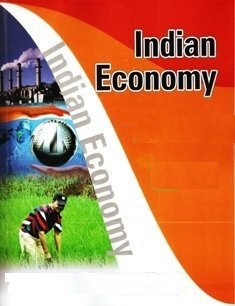Question Papers
Select Flexible papers options for all the test
Economy Mock Test I
 No Of Questions : 100
No Of Questions : 100
 Duration: 00:30:00
Duration: 00:30:00
 Total Mark: 100
Total Mark: 100
Economy Mock Test 2
 No Of Questions : 100
No Of Questions : 100
 Duration: 00:30:00
Duration: 00:30:00
 Total Mark: 100
Total Mark: 100
Economy Mock Test 3
 No Of Questions : 100
No Of Questions : 100
 Duration: 00:30:00
Duration: 00:30:00
 Total Mark: 100
Total Mark: 100
Economy Mock Test 4
 No Of Questions : 100
No Of Questions : 100
 Duration: 00:30:00
Duration: 00:30:00
 Total Mark: 100
Total Mark: 100
Economy Mock Test 5
 No Of Questions : 100
No Of Questions : 100
 Duration: 00:30:00
Duration: 00:30:00
 Total Mark: 100
Total Mark: 100
Economy Mock Test 6
 No Of Questions : 100
No Of Questions : 100
 Duration: 00:30:00
Duration: 00:30:00
 Total Mark: 100
Total Mark: 100
Economy Mock Test 7
 No Of Questions : 100
No Of Questions : 100
 Duration: 00:30:00
Duration: 00:30:00
 Total Mark: 100
Total Mark: 100
Economy Mock Test 8
 No Of Questions : 100
No Of Questions : 100
 Duration: 00:30:00
Duration: 00:30:00
 Total Mark: 100
Total Mark: 100
Economy Mock Test 9
 No Of Questions : 100
No Of Questions : 100
 Duration: 00:30:00
Duration: 00:30:00
 Total Mark: 100
Total Mark: 100
Economy Mock Test 10
 No Of Questions : 100
No Of Questions : 100
 Duration: 00:30:00
Duration: 00:30:00
 Total Mark: 100
Total Mark: 100

- Price: ₹100, Total Mock: 10
ECONOMY
Some quick example text to build on the card title and make up the bulk of the card's content.
Select your exam below and give an immediate push to your preparation
Explore our range of courses


Economics is a very important subject for many competitive exams. It does not just concern the economics section of the examinations but also the General Awareness section. For those who are not well-familiar with the subject, Economics may feel difficult to grasp. It is a matter of right guidance and right practice for candidates to get hold of the concepts of economics.
For students to better understand Economics, Testbook has worked on several blog articles that explain Economics concepts in easy and comprehensible language. These articles will help candidates not just in understanding the concepts but also apply them. They will help the candidates to revise economics and serve as reference material when stuck in doubts.
For easy availability of study material, these articles are here for our candidates to download in PDF format so that they can use them at any time anywhere. They may use these articles to prepare Economics for competitive examinations.
Economics Syllabus for Competitive Exams:
Here are some of the general Economics topics that are commonly noticed in several competitive examinations. This list is not the formal syllabus given by anyone and has been prepared solely by observing several different examination syllabuses.
Indian Economy:
For students to better understand Economics, Testbook has worked on several blog articles that explain Economics concepts in easy and comprehensible language. These articles will help candidates not just in understanding the concepts but also apply them. They will help the candidates to revise economics and serve as reference material when stuck in doubts.
For easy availability of study material, these articles are here for our candidates to download in PDF format so that they can use them at any time anywhere. They may use these articles to prepare Economics for competitive examinations.
Economics Syllabus for Competitive Exams:
Here are some of the general Economics topics that are commonly noticed in several competitive examinations. This list is not the formal syllabus given by anyone and has been prepared solely by observing several different examination syllabuses.
Indian Economy:
- Economic Planning in India: Five-Year Plans, NITI Aayog, and Economic Reforms.
- National Income and Related Aggregates: Gross Domestic Product (GDP), Gross National Product (GNP), Per Capita Income, etc.
- Poverty and Unemployment: Measurement, causes, and government schemes.
- Inflation: Types, causes, effects, and control measures.
- Monetary and Fiscal Policy: Objectives, instruments, RBI, Budget - types, components, and fiscal deficit.
- Reserve Bank of India (RBI): Functions, monetary policy, credit control, etc.
- Commercial Banks: Types, functions, role in the economy, and recent developments.
- Non-Banking Financial Companies (NBFCs): Functions, regulations, and recent trends.
- Financial Inclusion: Objectives, initiatives, and challenges.
- Taxation: Types of taxes (direct and indirect), tax reforms, and recent changes in tax structure.
- Public Expenditure: Types, components, and fiscal policy.
- Public Debt: Types, burden, management, and recent trends.
- Foreign Trade: Export-import policy, balance of trade, balance of payments, and trade agreements.
- Foreign Exchange Market: Exchange rate determination, exchange rate regimes, and recent developments.
- International Financial Institutions: IMF, World Bank, WTO, and their roles.
- Sustainable Development: Concepts, indicators, and challenges.
- Human Development Index (HDI) and related indicators.
- Developmental Sectors: Agriculture, Industry, Services, and their contribution to the economy.
- Recent Economic Developments: Government policies, budget announcements, major economic indicators, etc.
- Economic Survey and Union Budget: Key highlights and analysis.
Disclaimer: This app is not affiliated with, endorsed by, or representative of any government entity. The information provided is for informational purposes only and does not constitute official advice or services. For authoritative information, please consult the relevant government agency directly.